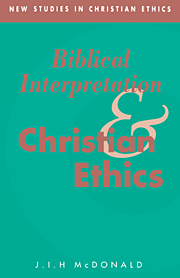Part One - LIBERAL PRINCIPLES AND PRACTICE
Published online by Cambridge University Press: 22 September 2009
Summary
The rationalists of the Enlightenment were correct in their view of the mind's ability to know the world. But they claimed too much, too confidently and too soon. They aimed at an omniscience that is not for human knowers to obtain, or even to aspire to.
(Colin Gunton)PHILOSOPHICAL AND CRITICAL GROUNDWORK
Problematic though it may be, the Aufklärung or Age of Enlightenment is the starting-point of our study. How can it be characterised? Sometimes it seems to epitomise a society developing a new confidence, a new awareness of its own potential: a society ready to solve its own problems by initiative and effort, and evincing a belief in its ability both to achieve and to progress materially and culturally. The pre-Copernican, geocentric world was now replaced by an increasingly confident anthropocentric universe. The new confidence could therefore strike a more iconoclastic note. There was a readiness to question, even to overthrow, the structures – whether of authority or power or dogma – which seemed to have retarded freedom and truth. Generally, the Aufklärung evinced an enquiring and creative spirit – in this respect, as in some others, the heir of the Renaissance. Human reason and will, human feeling and creative energy: on these foundations humankind would build its house, and neither heaven nor hell would prevail against it!
Sometimes, as in the microcosmic Scottish Enlightenment, the resultant picture is gracious and attractive: like Allan Ramsay's picture of David Hume, a figure of light emerging from the darkness.
- Type
- Chapter
- Information
- Biblical Interpretation and Christian Ethics , pp. 9 - 17Publisher: Cambridge University PressPrint publication year: 1993



